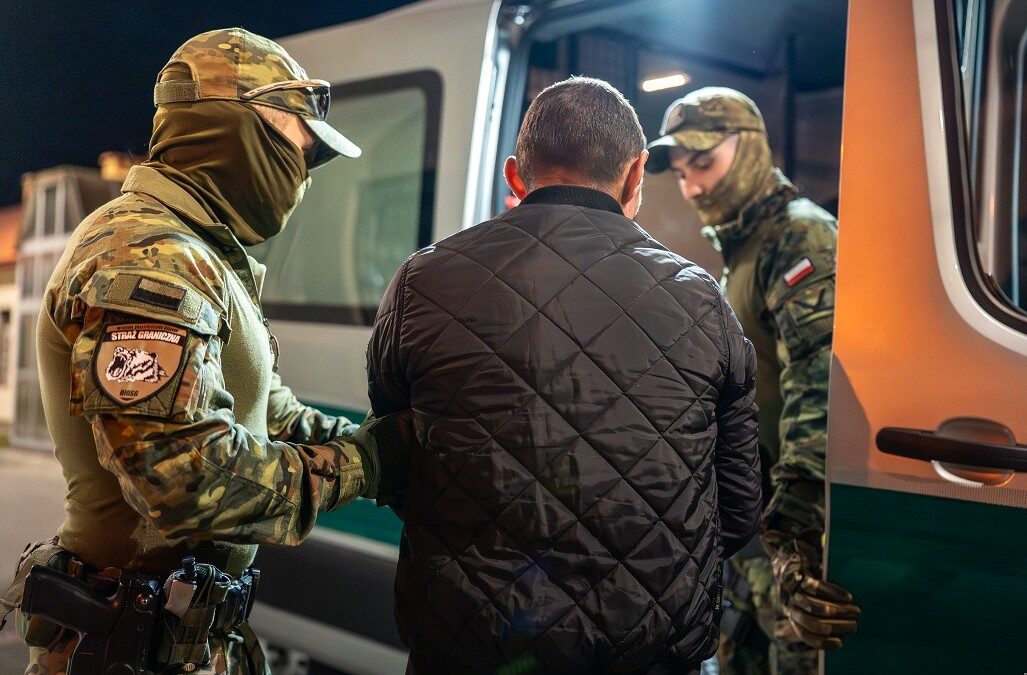Polish farmers are warning of an impending crisis due to a shortage of seasonal agricultural workers, many of whom would normally come from Ukraine but are prevented from doing so by current restrictions. Industry groups have appealed to the government for help.
Meanwhile, in Poland’s west, many of those who have business or family connections spanning both sides of the borders with Germany and the Czech Republic have also called for regulations to be relaxed. They were given support today by the far right’s presidential candidate, who called on the government to reopen the borders for workers.
Threats to the food supply chain
“Without seasonal workers it will be impossible to proceed with picking the crops,” warned Jacek Podgórski, director of the Institute of Agricultural Economics, speaking to Radio Maryja. “It might not be worth picking the fruit at all.”
Certain crops require swift picking and processing in order preserve the quality of the produce. Without enough seasonal workers to do this, warn producers, the agricultural sector faces billions of zloty in losses and Poland may struggle to maintain its food supply chain, reports Dziennik Gazeta Prawna.
The problems will exacerbate existing challenges facing Poland. The country is this year set for one of its worst droughts in over a century. Its consumers are already experiencing some of the highest levels of inflation in the world, driven mainly by rising food prices.
The Union of the Polish Refrigeration Industry and the National Fruit and Vegetable Processors Association have issued an appeal to the prime minister, Mateusz Morawiecki, calling on him to simplify work permit procedures and allow for swift and safe border crossing, especially for the farm workers from Ukraine. They have assured that workers will be provided with all the necessary protective equipment.
“It is necessary to keep the borders open for these employees,” says Podgórski. “If we are unable to maintain…the influx of workers from Ukraine, then we simply cannot cope.”
Poland was one of the first countries in Europe to shut down international rail and air connections, as well as to bring in border restrictions. As a consequence, many of the million or so Ukrainians who make up Poland’s largest migrant group rushed to get back home.
Foreigners with the right to reside or work in Poland are permitted to enter, but only by road and with a requirement to undertake 14 days of quarantine. Others are barred from entering legally.
In response to the pleas from industry groups, the agriculture minister, Jan Krzysztof Ardanowski, reminded them that the government’s measures to support businesses during the crisis already include simplified procedures for foreigners wishing to gain the right of residence.
It has also allowed workers whose visas expire to continue legally working during the official epidemic period and for 30 days afterwards, said Ardanowski, quoted by the Polish Press Agency.
The minister also noted that Poland is not the only EU country struggling with this issue. He expressed hope that the Polish foreign ministry would consider what actions could be taken to alleviate the situation, pointing to the example of Germany.
There, an exception to quarantine rules has been made for seasonal Polish workers, who are allowed to work even during their compulsory 14-day quarantine, as long as their employer abides by strict sanity rules, reports Deutsche Welle.
At the beginning of April, Germany announced that it will allow 40,000 seasonal workers to enter this month and a further 40,000 in May. Planeloads of farm workers from Central and Eastern Europe have already arrived.
British farmers have also warned that the country is facing a shortage of up to 80,000 agricultural workers this year. Last week, charter flights began bringing fruit pickers from Romania to work on British farms.
Protests on the German border
Meanwhile, protests are planned tomorrow at border points between Poland and Germany by some of the thousands of people currently prevented from crossing for work or family reasons, reports Głos Szczeciński.
One Polish woman, Kasia, tells the newspaper that she lives in Germany but has parents in their 80s on the other side of the border, whom she is now unable to help.
Elżbieta, who owns a business that operates on both sides of the border, says that every time an employee from her plant in Szczecin comes to Germany to pick up goods, he has to enter quarantine upon returning to Poland.
“Closing the border is killing us,” warns Marta Szuster, a Polish woman in Gartz, who says that people are only asking to be permitted the same kinds of contact across the border that they are allowed to have within each of the individual countries.
Members of the local government in West Pomerania Province, as well as councillors in the city of Świnoujście, have appealed to the prime minister to allow at least one border point to open for those with such cross-border business and family connections.
Co z pracownikami transgranicznymi? Premier odpowiada w czasie czatu https://t.co/sBLgyHJYTv pic.twitter.com/q888aXINVE
— Dziennik Wałbrzych (@DziennikWalb) April 21, 2020
On Tuesday, Morawiecki, answering a question during a live chat on Facebook, admitted that the situation on the German and Czech borders is “a very difficult dilemma”. However, he noted that the rate of coronavirus infections is higher in both countries than in Poland, and he has “an obligation to avoid increasing the risk of infection”.
The prime minister promised to “try to find a middle ground” by speaking with local governments about ways to allow those crossing the border into Poland to keep to sanitary requirements while also being able to work.
Today, far-right presidential candidate Krzysztof Bosak visited the city of Cieszyn, which straddles the border with the Czech Republic. He claimed that there are 47,000 workers on the Polish side of the border who are now prevented from crossing for work.
Among all border provinces, including those bordering Germany, there are 150,000 families negatively affected, said Bosak. He “urged the Polish government to listen to the voice of local leaders” and “restore the movement of cross-border workers”.
Posłowie @krzysztofbosak i @TudujKrzysztof upominają się o 47 tys. pracowników transgranicznych, którzy mieszkając na Śląsku Cieszyńskim nie mają dziś prawa pracowac w czeskich zakładach pracy! @KONFEDERACJA_ pic.twitter.com/RrqSrW0fwX
— Ruch Narodowy Okręg Śląski (@RNOkregSlaski) April 23, 2020

Agnieszka Wądołowska is deputy editor-in-chief of Notes from Poland. She is a member of the European Press Prize’s preparatory committee. She was 2022 Fellow at the Entrepreneurial Journalism Creators Program at City University of New York. In 2024, she graduated from the Advanced Leadership Programme for Top Talents at the Center for Leadership. She has previously contributed to Gazeta Wyborcza, Wysokie Obcasy and Duży Format.




















